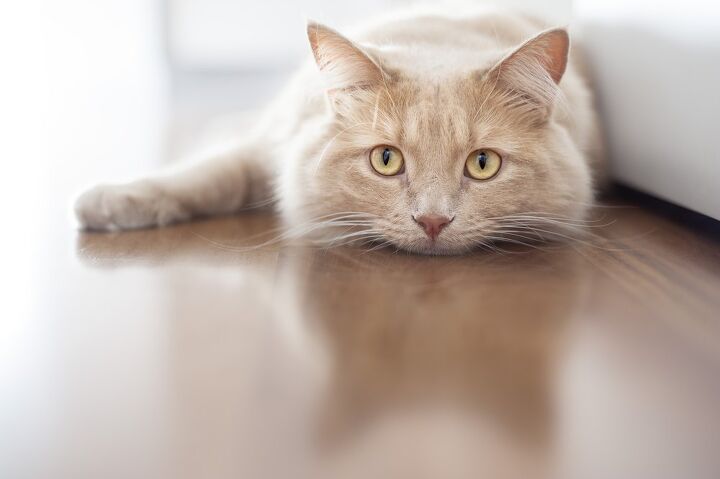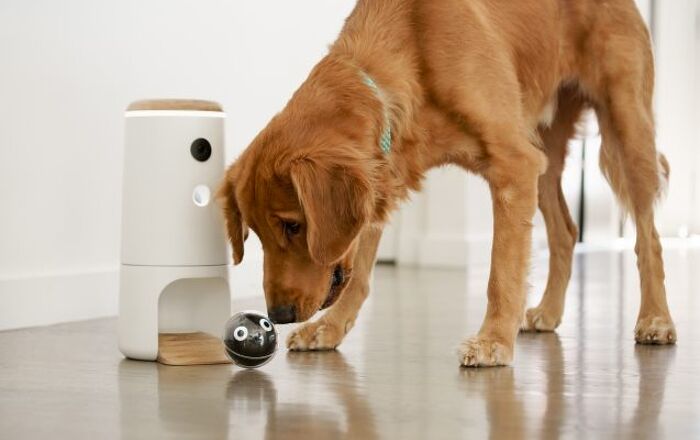
Cat owners can worry a lot about their little furry friends, and sometimes, there's a good reason for that. It is often hard to read a cat’s behavior, and when you finally realize that they are a bit sick, a quick solution might be needed. And if your cat is sick, you may be told that you should give her an injectable antibiotic. That can sound scary when you’re not a medical professional, and you might be looking to thoroughly check out what this actually entails before agreeing to it. So, is it safe? Does it really work? Read on as we try to learn more about injectable antibiotics for cats. Here’s what you need to know.
Just as your vet might have told you, antibiotics are commonly prescribed to pets when they aren’t feeling all that well. Sometimes they might be a simple solution for an ache to go away, or powerful aid in the fight with a nasty bug. But while you might immediately think of antibiotics that come in the form of pills or liquids, there is another option to be aware of. Injectable ones.
If your cat is in need of antibiotics to combat an illness, your veterinarian might suggest an injectable antibiotic, such as Convenia. A quick jab and the remedy is administered. But before you agree to this treatment option, consider the pros and cons, some of which are outlined below. It turns out that, while antibiotic injections might certainly be beneficial, there are several reasons why some experts advocate against using them. Here’s why.
One of the most obvious positive sides to these antibiotics is how fast they enter your cat’s system. Generally, an antibiotic injection is fast acting, which means it might help your pet feel better soon after she receives the shot. And one shot might be able to do the work of many days’ worth of antibiotics that would be given by mouth. So, you can see how this might be a convenient solution if your kitty is diagnosed with a condition that this type of medication is designed to treat.
A classic pill takes time to dissolve and get absorbed by the system, and is often dosed less than an injection. With an injection, it is different. Not only does it go directly into the system and is absorbed quickly, but the vet can also custom-dose it according to the animal’s needs, making it more potent and efficient.
One of the main reasons why antibiotic injections are so popular is because cats could be difficult to medicate when you have to give them oral antibiotics every day. Some cats might become agitated or downright aggressive when they’re being medicated, while others might feel frightened and hide as soon as they realize that it’s time to take their medicine. After all, we know that cats are rather willful and stubborn, and trying to give them a pill could prove to be a major challenge. All that jumping, scratching, hissing, and general chaos. With an injection, it is much simpler – a simple quick jab from the vet, and that’s it. No stress and no chaos.
To avoid stressing out your pet, and to reduce the risk of missing doses because you forgot to medicate your cat or your schedule got in the way, an injectable antibiotic can be given once at your vet’s office instead. A single injection of an antibiotic like Convenia is capable of working in your cat’s body for up to 14 days.
Another reason why some pet parents might prefer an antibiotic injection is because the veterinarian administers it. This means that, if it were the only medicine that your kitty needed, you wouldn’t have to worry about giving her any medications at home at all. Instead, you can let the single shot do its job. The vet is a professional and knows exactly how to deal with a cat, no matter if it's calm and obedient, or naughty and full of action.
Despite the convenience of injectable antibiotics for pets, there are some downsides to consider.
First off, as is the case with any medication, a cat may have an adverse reaction to the antibiotic. Or, if your pet is taking any other medications or supplements, the injection might adversely interact with them. In the case of an oral medication, if side effects occur, you could contact your vet, who would probably tell you to stop administering that medicine and, if necessary, bring the pet in for treatment to counteract the adverse effects. But when you’re dealing with an injection, it might not be possible to do that; the medicine is designed to be long lasting, so your vet might not be able to do much, if anything, about it. Also, the treatment required to help your cat recover from side effects might be costly.
According to experts, Convenia could remain in the body at sub-therapeutic levels for roughly 65 days after it has been administered. In other words, unlike oral antibiotics in pill or liquid form, this injectable antibiotic isn’t cleared quickly from a cat’s body, even after the 14 days of antibacterial effects have passed. This may increase the risk of problems developing.
Another thing to consider: the side effects of injectable antibiotics could range from mild to life threatening, and many pet parents have taken to the web to tell their stories about their cats’ adverse reactions to Convenia, in particular. A Facebook page titled “ Convenia adverse reactions in cats/felines and dogs/canines” is one example of a place where individuals who’ve lost pets to injectable antibiotics can share information.
Injectable medications, such as antibiotics, have their pros, and when they’re used appropriately, they can be helpful. However, it’s important to discuss the potential drawbacks of these medications with your vet.
No matter what pet related product you go for, there is bound to be some pros and cons involved. Nothing, after all, is completely ideal, and while it can be great for some owners, it might be bad for others. The same goes with injectable antibiotics for cats. Consider weighing the benefits and drawbacks before making a decision about injectable antibiotics. It might give you greater peace of mind, and reduce some risk, if you opt to give your kitty oral medications while using strategies to make the process less stressful for you and your pet.
In the end, your chosen veterinary can be a great help in deciding. After all, they are professionals that know exactly what they are offering. If they support your idea of injectable antibiotics, then you can surely go for it. And if you ever find yourself in doubt about any cat related products or antibiotics, do not hesitate to consult your vet and find the right decision. It can make a world of difference!















